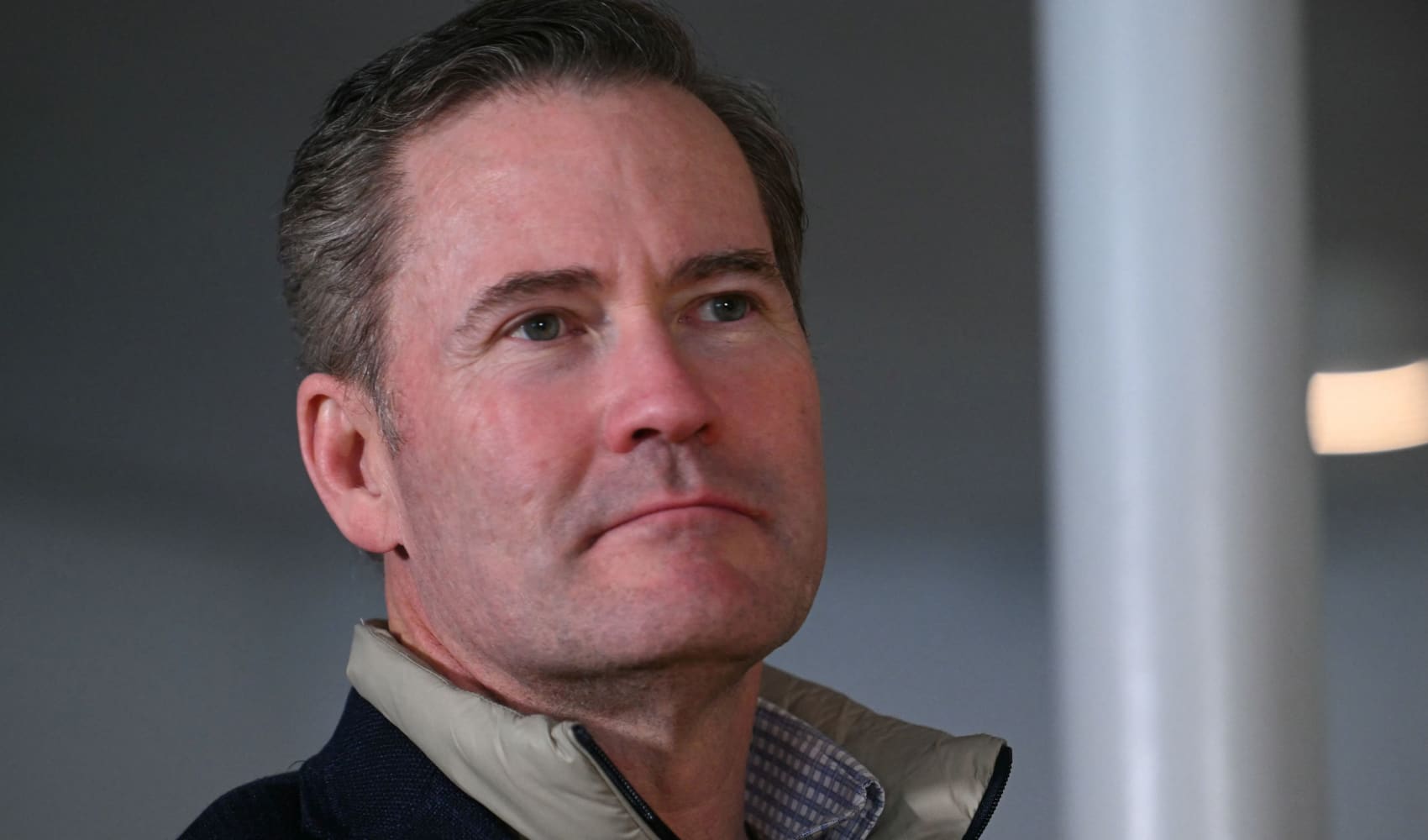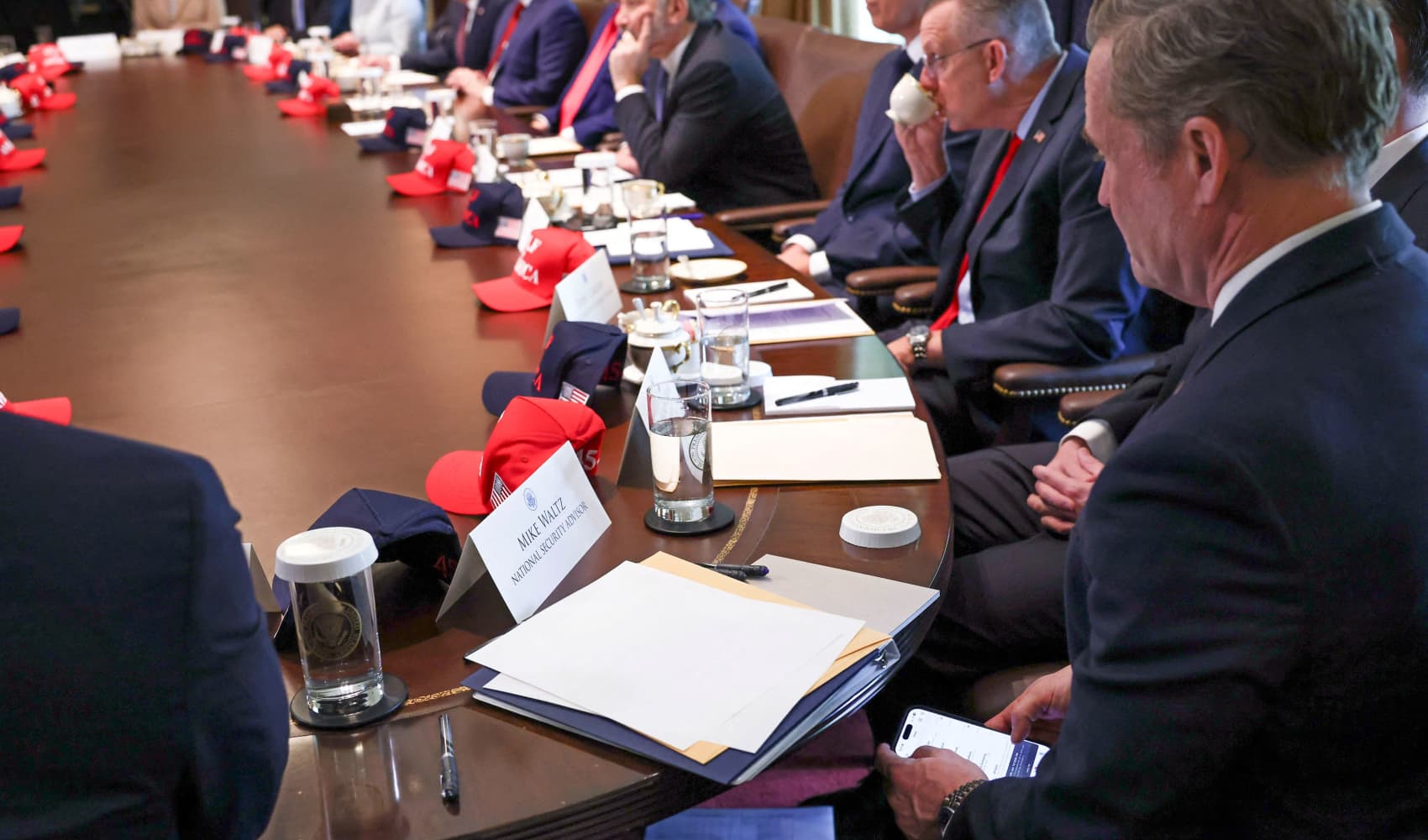Mike Waltz for UN Ambassador: Trump's Surprise Pick!
Trump Taps Mike Waltz for UN Ambassador: Shockwaves in Washington!
A Surprise Nomination: What's Going On?
Well, folks, it looks like things are getting shaken up in Washington again! President Donald Trump just announced his intention to nominate current National Security Advisor Mike Waltz as the next U.S. Ambassador to the United Nations. Talk about a curveball! It's a move that has many scratching their heads, especially given the recent whispers about Waltz's departure from his national security post. So, what exactly is happening here? Let's dive in!
H2: The Waltz Nomination: A Closer Look
President Trump's decision to nominate Mike Waltz is definitely making headlines. But what are the underlying factors driving this surprising choice? Is it a strategic move, or is there more to the story than meets the eye? Let's dissect the details.
H3: From National Security Advisor to UN Ambassador
The shift from a national security role to a diplomatic one is significant. Waltz's experience has primarily focused on security and foreign policy strategy. Now, he's potentially stepping onto the world stage as the face of the United States at the UN. Will his background translate effectively to the delicate art of international diplomacy? Only time will tell.
H2: Hegseth's Signal Chat and Waltz's Departure Rumors
The timing of this nomination is rather intriguing. Remember those news reports circulating about Waltz potentially leaving his position as National Security Advisor? Those reports stemmed from the controversy surrounding a Signal messaging app chat thread, reportedly used by Defense Secretary Pete Hegseth to reveal U.S. military plans. Was Waltz's nomination a way to transition him out of a potentially problematic situation? Hmmm...
H2: Stefanik's Missed Opportunity: A Precursor to Waltz?
Interestingly, this isn't the first time Trump has looked to fill the U.N. Ambassador role recently. Remember Rep. Elise Stefanik, R-N.Y.?
H3: The Stefanik Nomination: What Went Wrong?
Trump initially nominated Stefanik for the position, but ultimately withdrew her nomination. Why? He cited the razor-thin Republican majority in the House of Representatives. Every vote counts, and losing Stefanik's seat would have been a major blow. So, does Waltz face the same hurdles? Probably not.
H2: Waltz's Background: A Republican Firebrand
Mike Waltz is no stranger to the political arena. Let's take a moment to understand his background and political leanings.
H3: A Strong Conservative Voice
Waltz is known for his conservative views and staunch support of President Trump's policies. He's a Republican through and through, and his nomination signals a continuation of the administration's approach to foreign policy. But how will that play on the international stage?
H2: Trump's Rationale: What's the Thinking Behind This Choice?
What prompted President Trump to select Waltz for this prestigious role? What qualities does he see in Waltz that make him the right person for the job?
H3: Loyalty and Alignment with Trump's Agenda
One factor seems clear: Waltz is a loyal ally of President Trump. He's consistently supported the president's agenda and demonstrated his commitment to Trump's vision for America's role in the world. In Trump's eyes, this unwavering loyalty may be a crucial asset.
H2: The Senate Confirmation Process: Will Waltz Make It?
Of course, the nomination is just the first step. Waltz must now face the scrutiny of the Senate confirmation process. Will he pass with flying colors, or will he encounter resistance from Democrats?
H3: A Potentially Contentious Hearing
Given the current political climate, the Senate confirmation hearing could be quite contentious. Democrats are likely to grill Waltz on his views on key issues, including climate change, human rights, and international cooperation. Can he navigate these tricky waters successfully?
H2: The U.S. at the UN: What to Expect from a Waltz-Led Delegation
If confirmed, what can we expect from the U.S. at the United Nations under Mike Waltz's leadership?
H3: A Focus on American Interests
It's safe to assume that Waltz will prioritize American interests above all else. He's likely to advocate for a strong U.S. role in the world, while also pushing for reforms to make the UN more effective and accountable. Will that mean butting heads with other nations? Probably.
H2: Potential Challenges at the UN: A Diplomatic Minefield
The United Nations is a complex and often challenging environment. What obstacles will Waltz face as the U.S. Ambassador?
H3: Navigating International Relations
He'll have to navigate a web of international relations, building alliances, and negotiating agreements with countries that may have very different perspectives. It's a diplomatic minefield, and one wrong step could have significant consequences. Can Waltz strike the right balance between assertiveness and diplomacy?
H2: Global Reactions: How the World Is Responding
The news of Waltz's nomination is reverberating around the world. How are other countries reacting to this surprising development?
H3: A Mixed Bag of Reactions
Reactions are likely to be mixed. Some countries may welcome Waltz's strong stance on certain issues, while others may view him with skepticism. It's a complex dynamic, and Waltz will need to build trust and rapport with his counterparts from around the globe. Think of it like trying to bake a cake with ingredients from all over the world - you need to find the right recipe to make it work!
H2: The Impact on U.S. Foreign Policy: A Shift in Strategy?
Could Waltz's appointment signal a shift in U.S. foreign policy? Will it lead to a more assertive or isolationist approach to international affairs?
H3: A Continued Emphasis on "America First"
It's likely that Waltz will continue to champion President Trump's "America First" agenda. This means prioritizing American interests in trade, security, and other areas. Whether this approach will be effective in achieving U.S. goals remains to be seen. After all, sometimes you have to give a little to get a little, right?
H2: Waltz's Stance on Key Global Issues: What Are His Priorities?
What are Waltz's views on the most pressing global issues, such as climate change, human rights, and nuclear proliferation?
H3: A Clear and Consistent Message
He'll need to articulate a clear and consistent message on these issues, while also demonstrating a willingness to engage in constructive dialogue with other countries. That's a tall order, especially given the deep divisions that exist on many of these topics.
H2: The Future of the UN: A Critical Juncture
Waltz's potential appointment comes at a critical juncture for the United Nations. The organization faces numerous challenges, including funding shortfalls, internal reforms, and a growing sense of irrelevance. Can Waltz help to revitalize the UN and restore its credibility?
H2: The Political Fallout: Washington's Reaction
Back in Washington, how is the political establishment reacting to this unexpected nomination? Are there winners and losers in this shake-up?
H3: Expect the Usual Political Battles
We can expect the usual political battles, with Republicans largely supporting Waltz and Democrats raising concerns about his qualifications and policy positions. The confirmation process is likely to be a highly partisan affair. It's like watching a political ping-pong match – back and forth, back and forth!
H2: Conclusion: Key Takeaways
So, there you have it: President Trump's surprise nomination of Mike Waltz as the next U.S. Ambassador to the United Nations. The move follows reports of Waltz's impending departure as National Security Advisor and comes after the withdrawal of Elise Stefanik's nomination. Waltz's background as a Republican and his loyalty to President Trump make him a controversial but predictable choice. The Senate confirmation process will be a key test of his ability to navigate the complex world of international diplomacy. The world will be watching closely to see how this unfolds and what it means for the future of the United States at the United Nations.
Frequently Asked Questions
- Why was Elise Stefanik's nomination withdrawn?
President Trump withdrew Stefanik's nomination due to the slim Republican majority in the House, fearing the loss of her seat.
- What controversy surrounded Mike Waltz's role as National Security Advisor?
Waltz was reportedly involved in a Signal messaging app chat thread used to reveal U.S. military plans, leading to speculation about his departure.
- How does Mike Waltz's background influence his potential role as UN Ambassador?
Waltz's background is in national security and Republican politics, suggesting he will prioritize American interests and a strong U.S. role on the world stage.
- What are the potential challenges Mike Waltz will face at the United Nations?
He will face challenges in navigating complex international relations, building alliances, and negotiating agreements with countries holding different perspectives.
- What impact could Waltz's appointment have on U.S. foreign policy?
It could signal a continuation of President Trump's "America First" agenda, emphasizing American interests in trade, security, and other areas.

